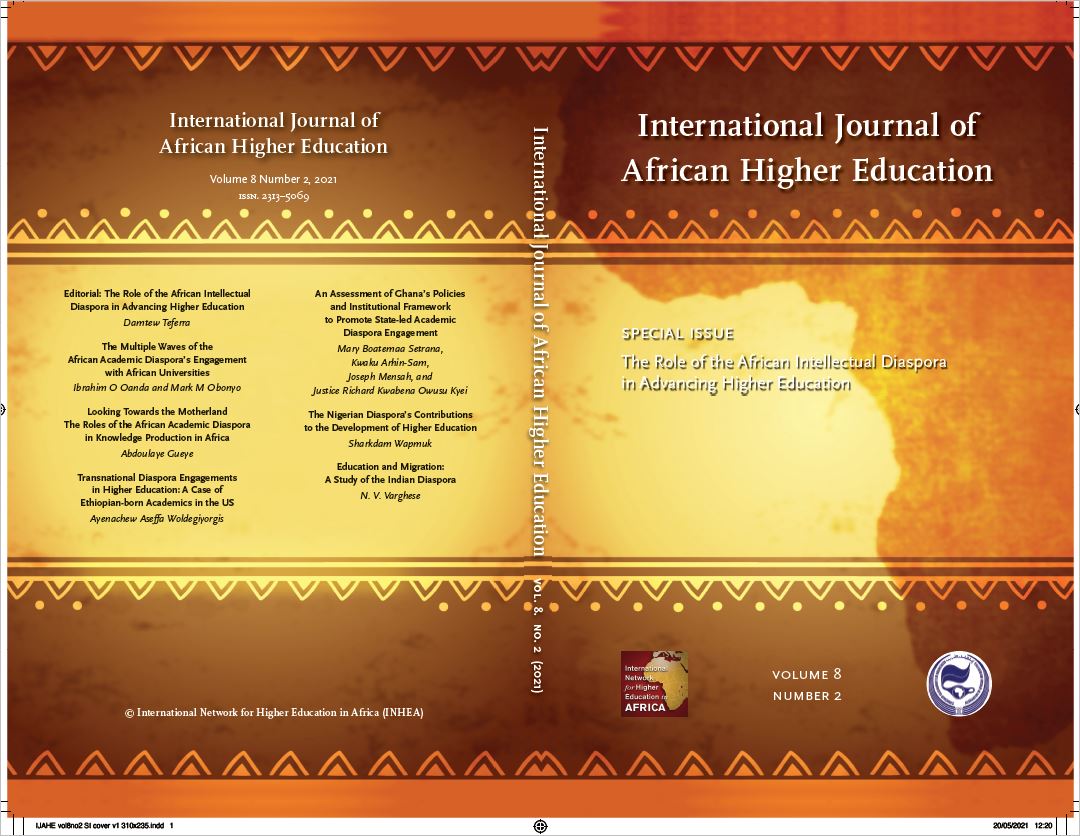The Nigerian Diaspora’s Contributions to the Development of Higher Education
Abstract
While engagement with the Nigerian diaspora has focused on attracting
investment and remittances, recently, attention has also shifted to its contribution
to the development of higher education. The descriptive and
qualitative study on which this article is based drew on secondary data
that was analysed through content analysis. The findings revealed that a
combination of factors motivated Nigerians, including intellectuals, to
emigrate, particularly in the 1980s and 1990s. This compounded existing
problems in Nigeria’s higher education sector. Since 1999, successive governments
have engaged the diaspora in national development, including
higher education. The study found that through the Linkages with Experts
and Academics in the Diaspora Scheme, the United Nations Development
Programme’s Transfer of Knowledge Through Expatriate Nationals, and
the World Bank assisted Nelson Mandela Institution, known as the African
University of Science and Technology, as well as alumni associations in
the diaspora, Nigerian diaspora academics have been returning home to
transfer knowledge in universities. Other contributions include projects,
donations, and programmes. However, several challenges constrain the
tapping of their full potential. The article recommends that the Nigerian
government should create an enabling environment, ensure clarity of
expectations, provide adequate funding and adopt long-term approaches to
engage with the Nigerian academic diaspora.
Key Words: Nigerian diaspora, higher education, brain-drain, brain-gain,
knowledge transfer
Downloads
Published
How to Cite
Issue
Section
License
Copyright (c) 2021 Sharkdam Wapmuk

This work is licensed under a Creative Commons Attribution-NonCommercial-NoDerivatives 4.0 International License.

